Teen Regains Vision After Receiving First Topical Gene Therapy
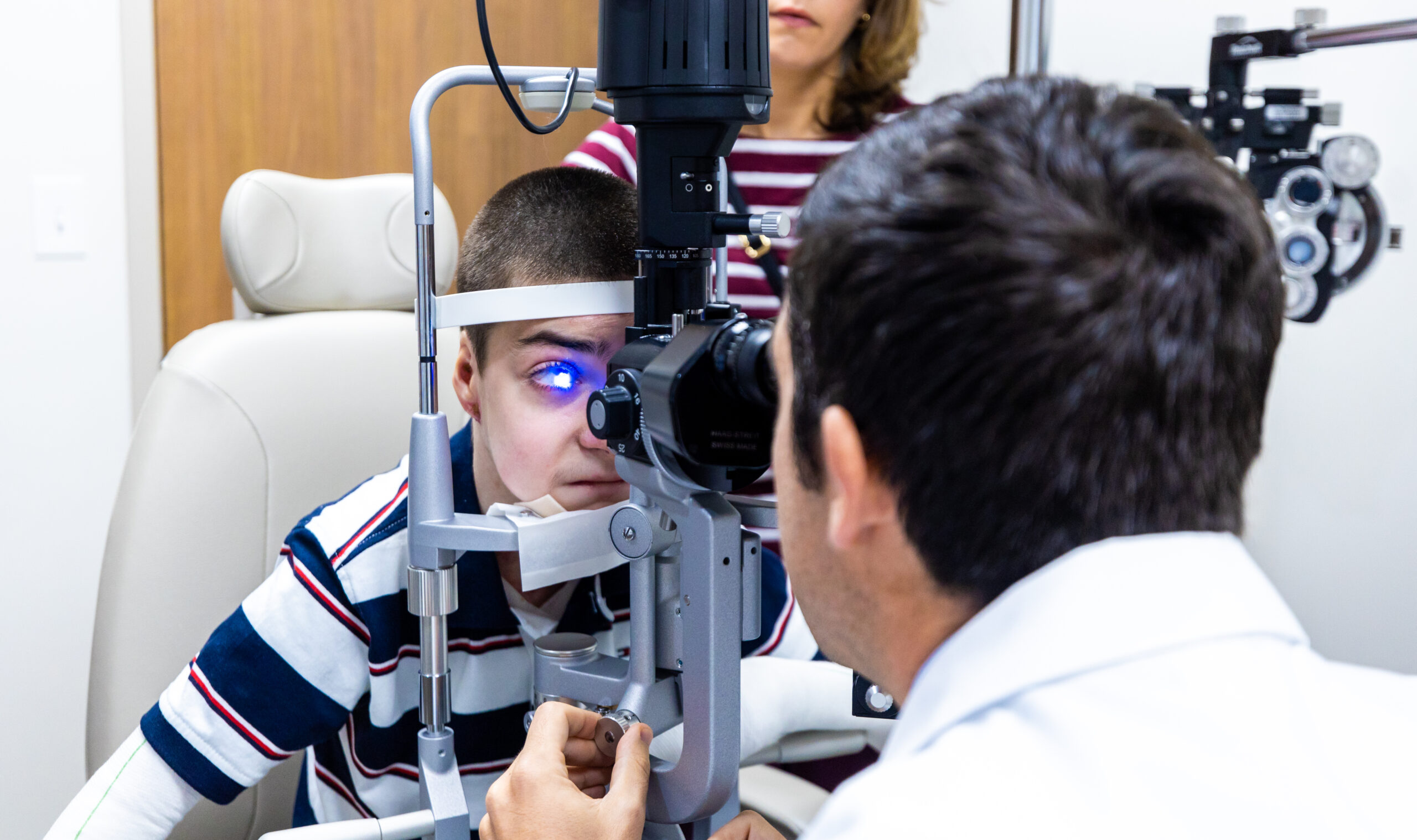
Antonio Vento has always loved to play video games on his PlayStation 4, particularly the popular game Minecraft where he can create different environments by using blocks, plants and other items. However, the 14-year-old hadn’t been able to do so for a long time because of severe vision loss.
“It was like looking through thick fog. I had trouble distinguishing the smaller numbers and letters in my games,” Antonio says. “For example, with Minecraft, when I needed the materials to build, I couldn’t see what I had to do. I had to stand up from my chair, walk over and get closer to the screen to be able to see.”
But after two successful surgeries and a first-of-its-kind gene therapy used by Bascom Palmer Eye Institute’s Alfonso Sabater, M.D., Ph.D., Antonio has the ability to build all the virtual worlds he wants.
“Now, I don’t have to get up from my chair. I can see the numbers and letters, and I can make out the small items I want to use in Minecraft. My vision for distance is so much better.”
Antonio’s success story extends beyond the screen. With his vision restored, his mother, Yunielkys “Yuni” Carvajal, calls the change “a rebirth, a new life.”
A rare genetic condition affected his eyes
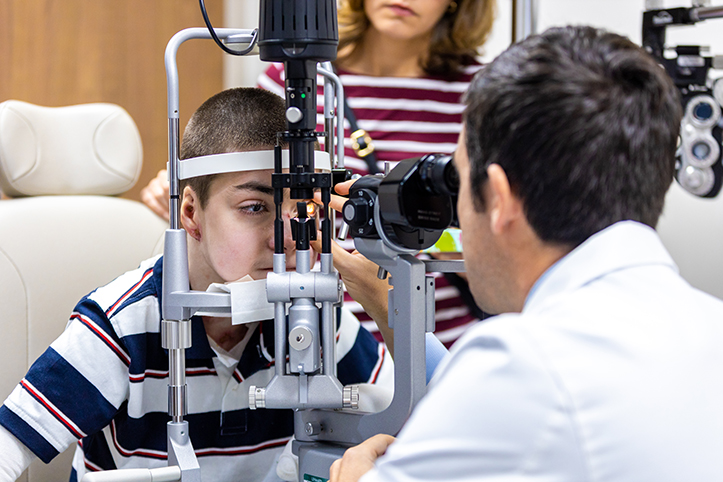
Antonio was born with dystrophic epidermolysis bullosa (DEB), a genetic condition that makes the skin and mucous membranes so fragile that any friction or minor injury results in painful blisters. The condition is so rare that only 3.3 million people worldwide suffer from it. In milder cases, this blistering occurs only on hands, feet, knees and elbows. With Antonio, however, the disease is so severe that it has also affected his eyes, leading to vision loss.
Antonio has been a patient at Bascom Palmer, part of UHealth – University of Miami Health System and the Miller School of Medicine, since age 4, when his family was granted a humanitarian visa to leave Cuba for his care. In 2016 and 2017, he underwent two surgeries on his left eye to clear the scar tissue that clouded his vision. Though those were initially successful, the improvement did not last. The blisters kept coming back because, due to the DEB genetic mutation, he does not produce the necessary collagen to prevent the wounds.
For Carvajal, the temporary solution, though welcomed, was also frustrating. She remembers an especially heartbreaking moment, when her son didn’t recognize her until she spoke aloud. “As a mother, that was very difficult.”
An alternative formulation of skin therapy
Then about two years ago, Dr. Sabater, associate professor of ophthalmology, medical director of Bascom Palmer’s Ocular Surface Program and director of the Corneal Innovation Lab, became intrigued with a drug, still in clinical trials, that was effectively treating Antonio’s skin condition. He reached out to the dermatologist in charge of that therapy, who suggested he contact the CEO of Krystal Biotech, the drug’s manufacturer. The drug company, according to Dr. Sabater, was “very helpful” and eager to develop an alternative formulation that could be used in the eye.
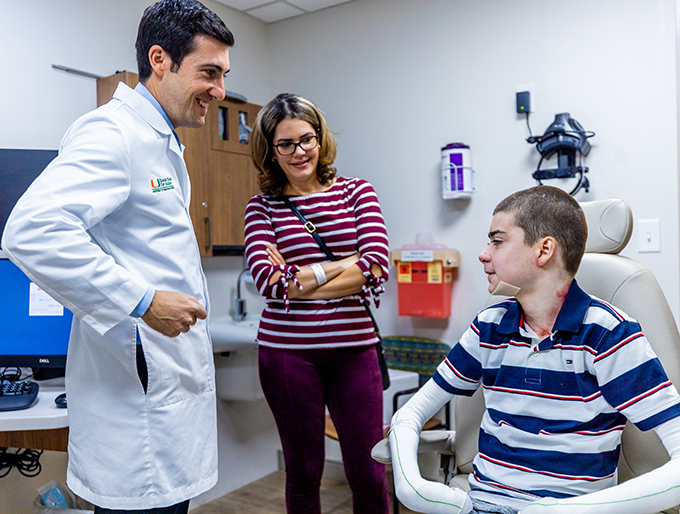
About two years of testing for safety and efficacy followed before the U.S. Food and Drug Administration granted compassionate use approval for Antonio. In August 2022, Dr. Sabater operated on Antonio’s right eye at UM/Jackson Memorial Hospital to remove scar tissue obstructing the boy’s cornea. Immediately after, he began applying the specially formulated eye drop, which promotes the production of a protein called Collagen 7 that Antonio’s body does not synthesize.
This topical treatment, the first of its kind, has proven to be “hugely transformative for Antonio,” Dr. Sabater adds. Slowly but steadily, the vision in Antonio’s right eye has improved to where it now is 20/25. What’s more, the acuity has remained stable — a feat that previous surgeries had not accomplished.
Encouraged by the results, Dr. Sabater operated on Antonio’s left eye in March of this year.
That eye has shown steady improvement, too.
“I’ve seen the transformation in Antonio’s life,” Dr. Sabater says. “He’s always been a happy kid. Now he’s very happy. He can function pretty much normally. He can read, he can study, he can play video games.”
Carvajal has witnessed the change, too. “It’s been a miracle,” she says. “A miracle of God and a miracle of science.”
She credits Dr. Sabater’s dogged commitment for the breakthrough. “He never gave up. He never surrendered,” she says, adding that she’s also grateful to the assisting Bascom Palmer health care team for going the extra mile.
The groundbreaking Krystal Biotech eye drops were approved only for Antonio, but Dr. Sabater hopes they might be used for other genetic conditions. So far, ocular gene therapy has been limited to treatment in the back part of the eye, but this new formulation targets the cells in the ocular surface.
“This is a platform that can potentially treat diseases that have a genetic component,” Dr. Sabater explained. He and Krystal Biotech are working on a future clinical trial that would enroll additional patients who would receive the same therapy.
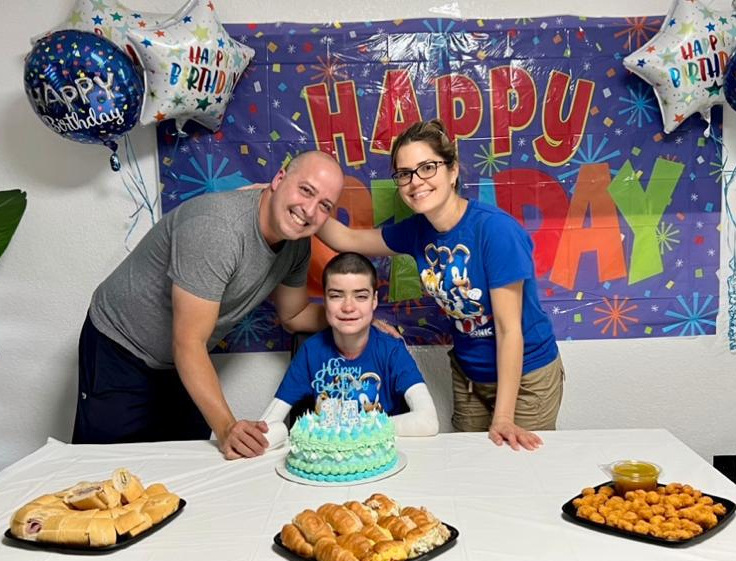
Carvajal admitted it was “very scary” to allow her son to be the first patient treated with the eye drops.
However, after many visits to Bascom Palmer over the years, she says she had “a lot of confidence in Dr. Sabater and in the team.” She encourages others to consider undergoing the unique gene therapy.
“I would send this message to other families in similar situations, whether it’s DEB or another condition that can benefit from genetic therapy,” she says. “Don’t be afraid.”
Watch the video.
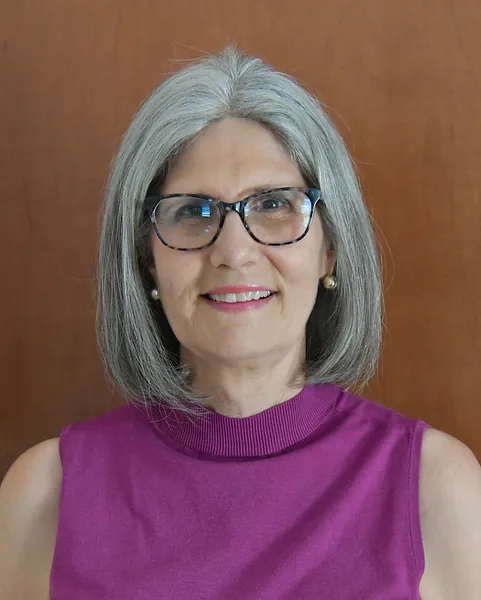
Ana Veciana-Suarez is a regular contributor to the University of Miami Health System. She is a renowned journalist and author who has worked at The Miami Herald, The Miami News, and The Palm Beach Post. Visit her website at anavecianasuarez.com or follow @AnaVeciana on Twitter.
Tags: Bascom Palmer Eye Institute, Dr. Alfonso Sabater, eye care in Miami, pediatric ophthalmology, restore vision
